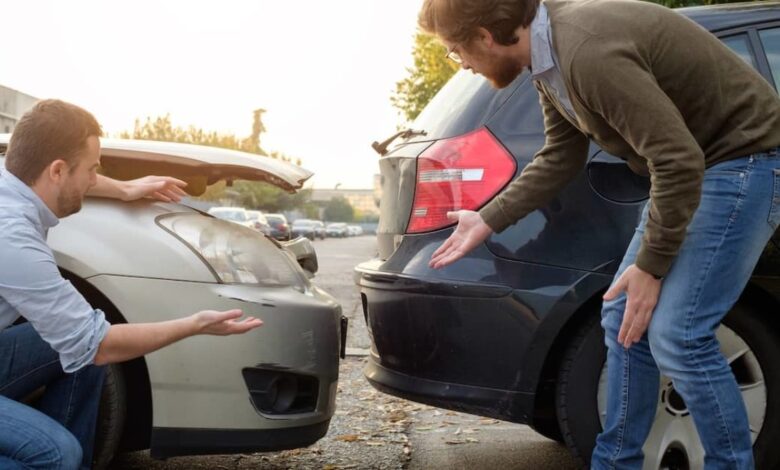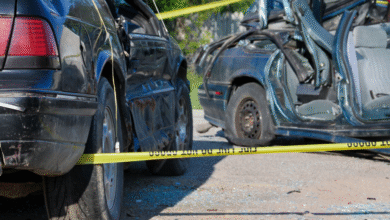Do Cars with Minor Accidents Have Clean Titles? The Truth Every Buyer Must Know

Introduction
You’re eyeing a used car that seems perfect—great price, low mileage, shiny exterior. But then you see it: a tiny line in the vehicle history report. “Minor Accident Reported.” Suddenly, doubt creeps in. Does this mean the title isn’t clean? And if the title is clean, is the car still safe to buy? This confusion costs buyers millions yearly in hidden risks and overpayments. Let’s demystify the link between accidents and titles—so you never overpay for a compromised car.
Section 1: What Exactly Is a “Clean Title”?
A clean title means a vehicle has never been declared a total loss, salvaged, or rebuilt. It’s free of severe damage brands that trigger DMV title changes.
Key Facts:
- No Total Loss History: Insurers didn’t write it off after an accident.
- No Theft Recovery Brands: Never stolen and recovered with damage exceeding value.
- Lien-Free: No outstanding loans or legal claims.
Source: National Motor Vehicle Title Information System (NMVTIS)
Myth Buster: A clean title ≠ accident-free. Minor accidents often leave titles untouched.
Section 2: Minor vs. Major Accidents: Where Titles Change
Minor Accidents (Title Usually Stays Clean)
- Fender Benders: Scratches, bumper dents, broken lights.
- Cosmetic Damage: Paint scuffs, minor dings.
- Glass-Only Claims: Windshield replacements.
Why titles stay clean: Repairs cost less than the car’s value. Insurers don’t total it.
Major Accidents (Title Branded “Salvage” or “Rebuilt”)
- Structural Damage: Bent frames, compromised crumple zones.
- Flood/Fire Impact: Water or fire damage exceeding 75% of value.
- Deployment of Airbags: Often signals high-impact collision.
Result: Insurers declare a total loss → title branded.
Data Insight: Over 1.5 million cars get salvage titles yearly (Insurance Information Institute).

Section 3: How Accidents Hide Behind Clean Titles
The Reporting Gap
- No Federal Mandate: Accidents under $2,500–$10,000 (varies by state) often go unreported.
- Private Repairs: Owners fix minor damage without insurance claims.
Real-World Example
A 2020 Toyota Camry with $1,800 bumper damage repaired privately won’t appear on Carfax. Title remains clean—but the accident happened.
Section 4: Why “Minor Accident” Cars Are Title-Clean (But Still Risky)
Hidden Pitfalls:
- Diminished Value: Post-accident cars lose 10–30% resale value—even with clean titles.
- Shoddy Repairs: Cut-rate body shops may misalign frames or use inferior parts.
- Safety Compromises: Improperly replaced sensors or airbags risk future failures.
Expert Quote:
“A clean title guarantees nothing about accident history. Always dig deeper.”
—Scott Holloway, Used Car Inspector, ASE-Certified
Section 5: 5-Step Checklist to Avoid Accident Title Traps
- Run a VIN Check
Use free tools:- NHTSA VIN Lookup (recalls only)
- Paid reports: Carfax ($39.99), AutoCheck ($24.99).
Pro Tip: Cross-check both—reporting gaps differ.
- Decode the Accident Report
- “Minor Damage”: Cosmetic-only.
- “Moderate Damage”: Suspension/mechanical impact.
- “Severe Damage”: Likely title-branded.
- Demand Repair Documentation
Ask for:- Body shop invoices.
- Parts replacement proof.
- Pre/Post-repair photos.
- Hire a Mechanic for Inspection
- Frame Measurement: Ensure alignment.
- Paint Thickness Test: Reveals hidden bodywork.
- Computer Scan: Check for error codes from impact sensors.
- Verify Title Status
- Get the actual title (not a copy).
- Check for brands like “salvage,” “rebuilt,” or “junk.”
- Confirm via your state’s DMV portal (e.g., California DMV Title Check).
Section 6: When a “Minor Accident” Car Is Worth Buying
Green Flags:
- Documented Repairs: OEM parts used, certified shop.
- No Structural Harm: Confirmed by mechanic’s inspection.
- Price Discount: At least 15% below market value.
Red Flags:
- Vague seller descriptions (“light scrape,” “no big deal”).
- Refusal to share repair records.
- Mismatched paint/panel gaps.

Section 7: Legal & Ethical Considerations
Seller Obligations:
- Federal Law: No requirement to disclose accidents unless title is branded.
- State Laws: 11 states (e.g., New York, Texas) mandate accident disclosure.
- Ethical Gray Zone: “Clean title” sellers hiding accident history face fraud lawsuits.
Conclusion: The Smart Buyer’s Mindset
Cars with minor accidents often retain clean titles—but that title is just one piece of the puzzle. Prioritize inspections, demand proof, and leverage diminished value to negotiate. Remember: A clean title doesn’t erase history. It just means the damage wasn’t catastrophic. Stay vigilant, verify relentlessly, and never let a shiny exterior override hard evidence.

